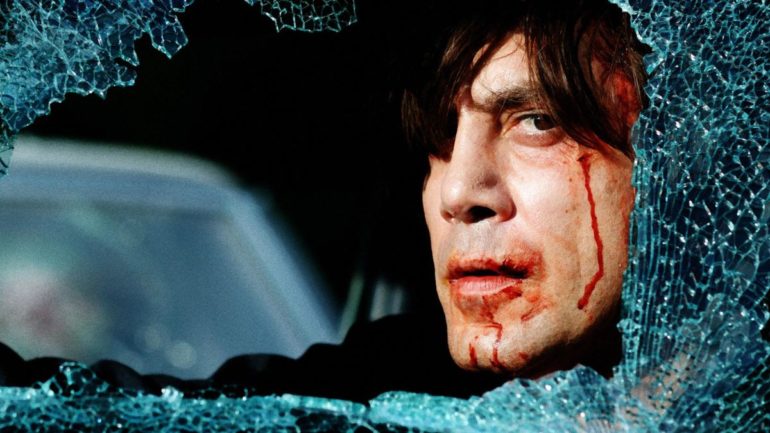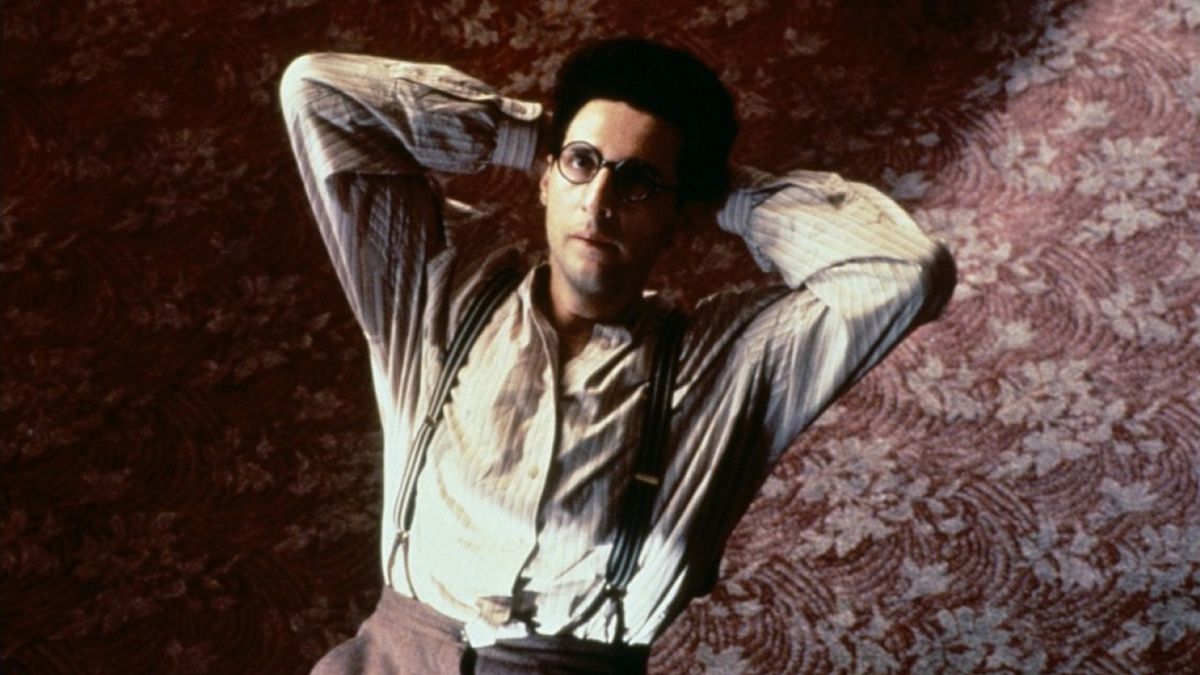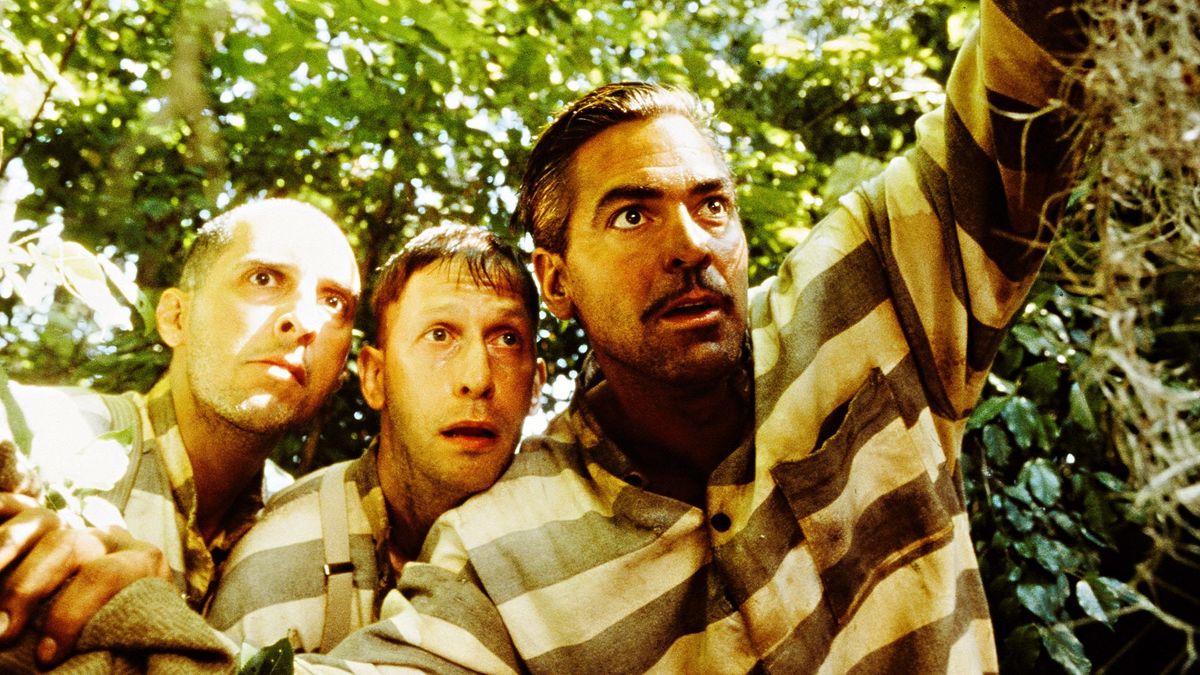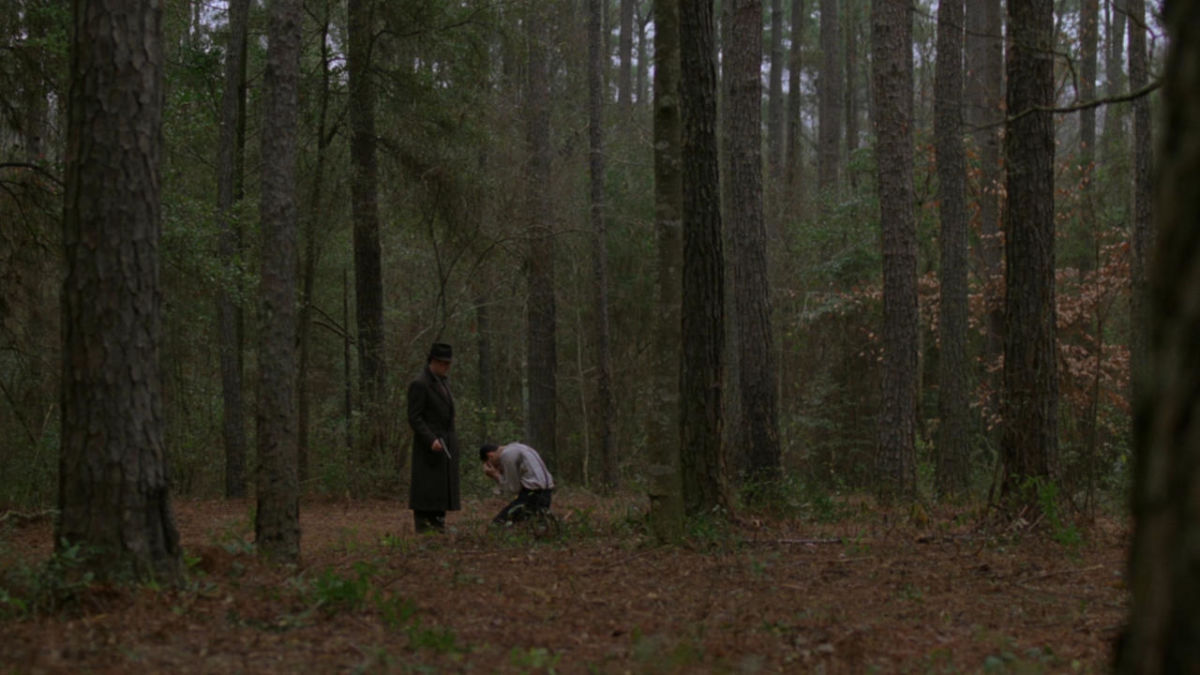The Coen brothers have gained a reputation as highly versatile and prolific filmmakers, bringing to the screen a collection of weird and wonderful creations over the last thirty four years. Their quirky and offbeat style has resulted in some truly inspired characters and narratives being shared with audiences. They have also become well known for their fantastically dry and witty dialogue that can be seen in many of their films, not to mention their utterly mad but entertaining scenarios and situations.
As film-making brothers, they have shown a keen talent in being able to produce a variety of films that explore different genres, and in some cases combining two or three together. At the same time there is something recognizably Coen brothers about their films. Their ability to deliver shocking, gritty violence on one hand and goofy, oddball humour on the other is evidence of their skill as filmmakers.
10. Raising Arizona (1987)
Raising Arizona, the Coens’ second feature-length title, is goofy, silly and makes no logical sense. But it is also refreshingly light hearted and fun compared to other Coen brothers films, which are more in the vein of black comedy. It also doesn’t have that element of gritty authenticity that grounds most of their other films in reality, despite the larger than life characters, but that is part of its allure.
In terms of entertainment value, it certainly delivers, presenting outlandish characters with striking outfits and hairstyles embroiled in nutty schemes. The film has a colour and warmth to it that is extremely comforting and the pace of the film is quite zippy, making it a vibrant and hilarious roller-coaster of a ride. The fact that it features one of Nicolas Cage’s best performances to date is yet another reason to give it a watch, as they are often few and far between.
9. Barton Fink (1991)
Barton Fink is probably one of the Coen brothers’ most physiological and horror orientated works. On paper the basic concept might not sound the most exciting, as a lot of it focuses on John Turturro bunkered down in his hotel room, trying to write movie scripts.
However, the Coen brothers manage to engage the viewer by really getting across both the madness of trying to write and the strange goings-on in the hotel. The odd sounds and noises he hears make for a surreal watch and the genius of the film is in the way the main character and viewer don’t know what is real and what is a projection.
John Goodman gives an unforgettable performance as the salesman in the room next door, able to portray a character who is somehow warm and friendly at one moment and mad and slightly deranged in the next. Barton Fink has underlying themes of religion and symbolism, but its main focus is on the strange process of writing and the authors themselves. This is set to the backdrop of the alluring but somewhat seedy setting of Hollywood.
8. Burn After Reading (2008)
Burn After Reading makes it clear from the outset that it is going to include a barmy, harebrained story at its centre. It is an immensely funny film with the Coens’ signature style of offbeat dialogue spoken by strange but somehow enchanting characters.
The star-studded cast are put to great use, including a wacky but slightly neurotic George Clooney, a shy but kooky Frances McDormand, an intelligent but sociopathic John Malkovich and more. But it is Brad Pitt who really steals the show, demonstrating his aptitude for comedy as well as drama. The various separate narratives coalescing together results in both shocking and hilarious scenes with all the bizarre randomness that the Coens bring to the screen.
7. A Serious Man (2009)
A Serious Man is the meeker and more passive version of Michael Douglas’ Falling Down, in so much that Larry is constantly on the edge of having a psychotic breakdown, but never has the confidence to see it through. There is something frustrating and painful about watching Larry lie back and take the abuse, but it also uncomfortably authentic.
The fact that he just grimaces and takes up the slack shows just what a well developed and crafted character he is. Michael Stuhlbarg is perfect in the role, never overplaying his performance and using subtle reactions and expressions to convey his internal frustration and anger at everything.
Although much of the material is serious as the title suggests, such as Larry’s marriage falling apart and his ongoing issues with his brother, there is also a lot of humour as well. Throughout the film, Larry visits four Rabbis, asking for advice. Each Rabbi provides their own interesting views on how Larry should fix his predicament. Due to the difference of opinions, Larry ends up feeling more confused than he was in the first place, which is hilarious yet tragic.
Mixed in with this down to earth story about a Jewish man’s personal crisis are some interesting surreal sequences, such as the scene with the neighbour and the dream about his brother that remind the audience that this is still just as quirky as the other Coen brothers films.
6. O Brother, Where Art Thou? (2000)
George Clooney has now cemented himself as an accomplished comedy actor, but at the time this film was made, he was better known for playing straight, suave and smart talking characters. Early on in O Brother, Where Art Thou, Clooney demonstrates just how funny he can be, in particular his repeated use of the phrase of ‘we’re in a tight spot’ and the sequence involving an argument over Dapper Dan hair wax. Next to him you have John Turturro and Tim Blake Nelson who are equally if not better comedic presences.
Around them is a film that is totally bonkers but the right kind of crazy. The Coen brothers excel when they have a big focus on offbeat, quirky dialogue and bizarre, hilarious situations. The setting is enchanting with its focus on Southern culture and the music is catchy and feet-stompingly good.
5. Miller’s Crossing (1990)
Although not as successful or popular as some of the other Coen brothers’ films, Miller’s Crossing is an interesting piece of cinema for a number of reasons. Visually it is by far one of the prettiest and most atmospheric films the Coen brothers have made, with some truly cinematic and stylish shots. It does a masterful job of depicting the prohibition era the film is set in, with a loving attention to detail with regard to wardrobe design, sets and choices of vehicles.
The Coen brothers are an extremely versatile filmmaking duo, able to make films that are dark and serious and others that are funny and goofy. Miller’s Crossing is an unusual blending of the two but somehow inexplicably works. It has all the quirkiness and peculiarity of the Coens’ signature comedy style but also has a number of hard hitting and intense sequences.
Even though Miller’s Crossing was shot in colour, it has all the attributes that make up a classic film noir. It is extremely stylized both in its tone and visual design, which makes for some great dialogue exchanges and tense shoot outs and show downs.
4. Blood Simple (1984)
The Coens’ debut film is naturally rough around the edges due to its low budget production and lack of polish. However, it still stands up as one of their best as at its heart thanks to its engaging narrative and interesting characters. Like Miller’s Crossing, Blood Simple clearly has a noir style and tone in its approach. The palette of dark blacks and reds gives it an incredibly striking visual look.
One sequence where the main characters find themselves in a field at night is incredibly shot. The tail lights of the car cast a red hue on everything creating a truly eerie and spine chilling atmosphere to the scene.
While not quite as complicated as some of the other Coen films, there are enough twists and turns to remain unpredictable and surprising. It is also an excellent film in terms of focusing on a character who is caught in a truly compromising, fraught and continually dangerous position.
Frances McDormand is an actor who just gets better and better as time goes by but even in this early entry where she was still very young, McDormand gives a strong performance.
3. The Big Lebowski (1998)
Films about mistaken identity aren’t uncommon but the fact that the Coen brothers manage to design it around a character’s rug being ruined as a central plot is just pure genius. The situations get more out of control and ridiculous as the film goes on and serves for some of the best and most amusing confrontations and encounters from the catalogue of the Coens.
The all-star ensemble cast are fantastic with some great supporting performances from Philip Seymour Hoffman, Julianne Moore and Peter Stormare to name a few.
It is the leading duo that really steal the show though. Jeff Bridges and John Goodman give inspired performances and although they are completely mad and morally questionable, you can’t help but love the dysfunctional duo. It is certainly one of their most iconic titles with memorable scenes such as The Dude’s bowling dream and the classic throwing of the ashes into the wind.
The little oddities, eccentricities and character details really make the film, like The Dude’s signature dressing gown and White Russian and Walter’s obsession with military apparel and weapons.
2. Fargo (1996)
Fargo is a film where you will laugh an awful lot but for the wrong reasons – it is the epitome of dark humour. A lot of their films tend to focus on situations spiralling out of control and the unfortunate characters caught in the middle.
Fargo is a prime example of that, and it has the ability to make you empathize with the main characters despite their moral ambiguity, demonstrating the Coens’ talent as directors. The snow-covered landscape of Minnesota is both beautiful and dangerous and has such a prominent role that it almost becomes a character itself.
The Coen brothers are well known for including sudden moments of surprising and shocking violence and Fargo is one of their films that features that more than others. It has a gritty realism and stark harshness that keeps it grounded and authentic, proving that the Coen brothers are just as good at handling drama as they are comedy.
Frances McDormand gives an enchanting performance as the investigating police chief and her cheery and warm disposition juxtaposes beautifully with the brutal and nasty case she is pursuing. William H. Macy nails it as the nervous and weaselly car salesman and Steve Buschemi and Peter Stormare play fantastically off one another as the two henchmen hired by Macy.
1. No Country For Old Men (2007)
No Country For Old Men is a thrilling and extremely tense watch, as we see the hunter becoming the hunted and trying to outrun the killer on his heels. The tension is masterfully built as the hitman Anton Chigurh draws closer and closer to Llewellyn and the moments when they almost cross paths but don’t, only serves to reinforce the suspense. Then in the handful of moments they do come to blows, the sequences are action packed, intense and exhilarating.
Javier Bardem is genuinely terrifying as Chigurh with his joker-like grin and calm, deep voice, and there is a frightening intensity about his character that Bardem manages to convey with just his eyes alone.
The cinematography is flawless, ranging from wide, vast establishing shots of Texas to close, tight interior shots of darkened rooms and hallways. Every angle and shot of the film is a work of art, the exterior landscape scenes reminiscent of classic Westerns and the night time interior sequences more akin to contemporary crime thrillers. The blend of styles makes for a stylized but gritty visual approach that results in the film looking both gorgeous and having a harsh, brutal feel to it.
There are some great little sections of dialogue, especially where Tommy Lee Jones is involved, which demonstrate that the Coen brothers aren’t relying solely on Cormac McCarthy’s original book to make the film work. At the same time they have remained highly faithful to the original story, only making a few tweaks here and there. It isn’t a surprise it won four Academy Awards including Best Picture, Best Director, Best Supporting Actor and Best Adapted Screenplay.
Some of the coverage you find on Cultured Vultures contains affiliate links, which provide us with small commissions based on purchases made from visiting our site. We cover gaming news, movie reviews, wrestling and much more.






